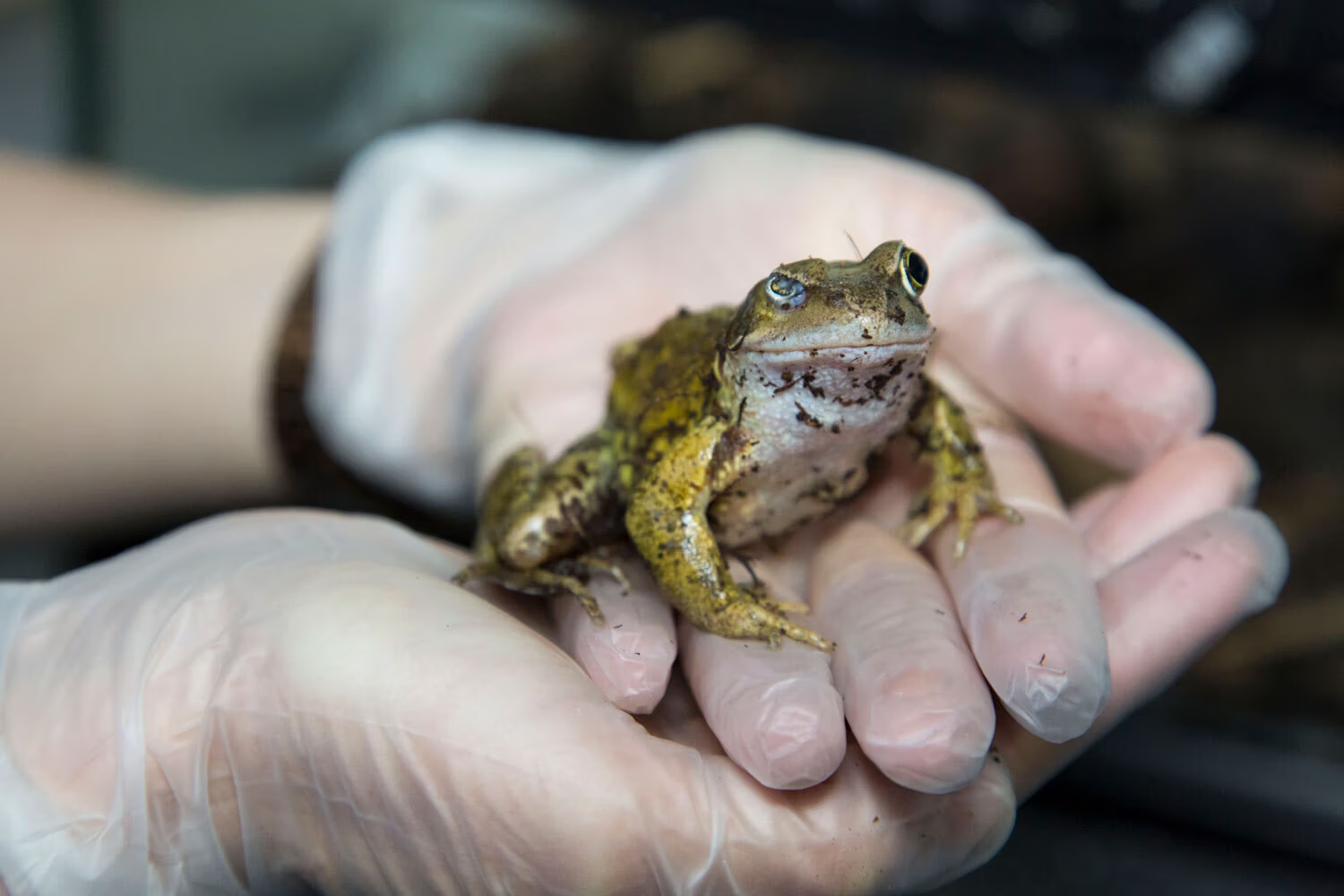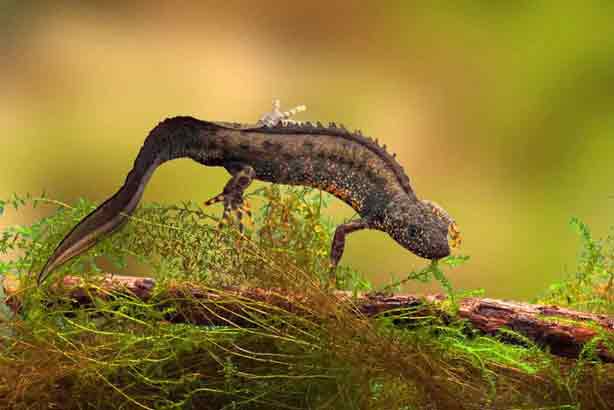Helping Amphibians
Frequently Asked Amphibian Questions
What should I do if I find a great crested newt in my garden pond?
Great crested newts are a protected species, so it’s best to leave them undisturbed. Their presence can indicate a healthy pond ecosystem. You can support them by keeping the area chemical-free and minimizing disturbances.
Why are great crested newts protected?
Habitat loss and pollution have led to significant declines in their population, making them vulnerable. European and UK legislation protects them and their habitats to prevent further decline.
Are great crested newts harmful to my fish or plants?
No, great crested newts pose no threat to fish or plants. They feed primarily on invertebrates and play a beneficial role in controlling garden pests. Keeping ponds without predatory fish can actually help newt populations thrive.
I think I found an injured great crested newt, what should I do?
If you find an injured great crested newt, it’s important to handle it carefully, as they’re a protected species in the UK. Here are steps to follow:
- Contact a Local Wildlife Rescue or Specialist: Our emergency helpline is 01372 360404. They can guide you on immediate care and transportation and may advise you to bring the newt to them.
- Use a Small Container: If transportation is necessary, use a clean, well-ventilated container (like a small plastic box or Tupperware with holes). Line the bottom with a moist paper towel or damp moss to keep the newt comfortable, as they need moisture to avoid dehydration.
- Handle Gently: Avoid handling the newt directly, as their skin is delicate and absorbs oils and contaminants. Use a soft cloth or wear clean, moist gloves if handling is needed to move it into the container.
- Keep the Container in a Cool, Shaded Place: Newts are cold-blooded, so keep them in a shaded, cool area away from direct sunlight during transport. Avoid extreme temperature changes.
- Do Not Attempt to Treat Injuries: Unless advised by a specialist, don’t attempt any treatment. Newts have specific needs, and improper care can worsen their condition.
What should I do if i find a frog in my garden?
Frogs are beneficial for gardens, helping to control insect pests. You can encourage their presence by maintaining a chemical-free environment and providing hiding spots like logs and stones.
I have found an injured frog, what should I do?
Place the frog in a well-ventilated container lined with damp paper towels. Contact a local wildlife rescue center for further advice, as they are equipped to care for injured amphibians. Our emergency helpline is 01372 360404.
Are frogs a threat to my fish?
Frogs primarily feed on insects, worms, and other invertebrates, posing no threat to fish in garden ponds.
How can I tell if I have a common frog or a toad?
Frogs have smooth, moist skin and long legs for jumping, while toads have drier, warty skin and shorter legs suited for crawling.

How you can help
Protect Ponds: Advocate for the conservation of ponds and wetlands, especially those that serve as breeding sites for newts. This can be done by supporting local conservation groups or participating in wetland clean-up events.
Limit Chemical Use: Avoid pesticides and fertilizers near waterways, as they harm the delicate ecosystems that support great crested newts.
Create Wildlife-Friendly Gardens: Leaving piles of leaves, logs, or stones around the garden offers hiding and overwintering sites, keeping newts safe from predators and extreme weather. You can also create a pond. Even a small pond can be home to interesting wildlife!
Create or Support Wildlife Corridors: Newts often travel between ponds and other habitats, so creating “wildlife corridors” (e.g., leaving gaps in fences or hedges) allows them to move safely between areas without encountering as many barriers.
Drive Carefully Near Wetland Areas: Newts often cross roads between ponds, so cautious driving, especially during the breeding season, can help reduce road mortality.
Conservation status - newts
Some newt populations in Europe have decreased because of pollution or destruction of their breeding sites and terrestrial habitats; countries such as the UK have taken steps to halt their declines. In the UK, newts are protected under the Wildlife and Countryside Act 1981, and the Habitat Regulations Act 1994. It is illegal to catch, possess or handle Great crested newts without a licence, and it is also illegal to cause them harm or death, or to disturb their habitat in any way. The IUCN Red List categorises the species as ‘lower risk’. Although the other UK species, the Smooth newt and Palmate newt are not listed, the sale of either species is prohibited under the Wildlife and Countryside Act, 1981.
